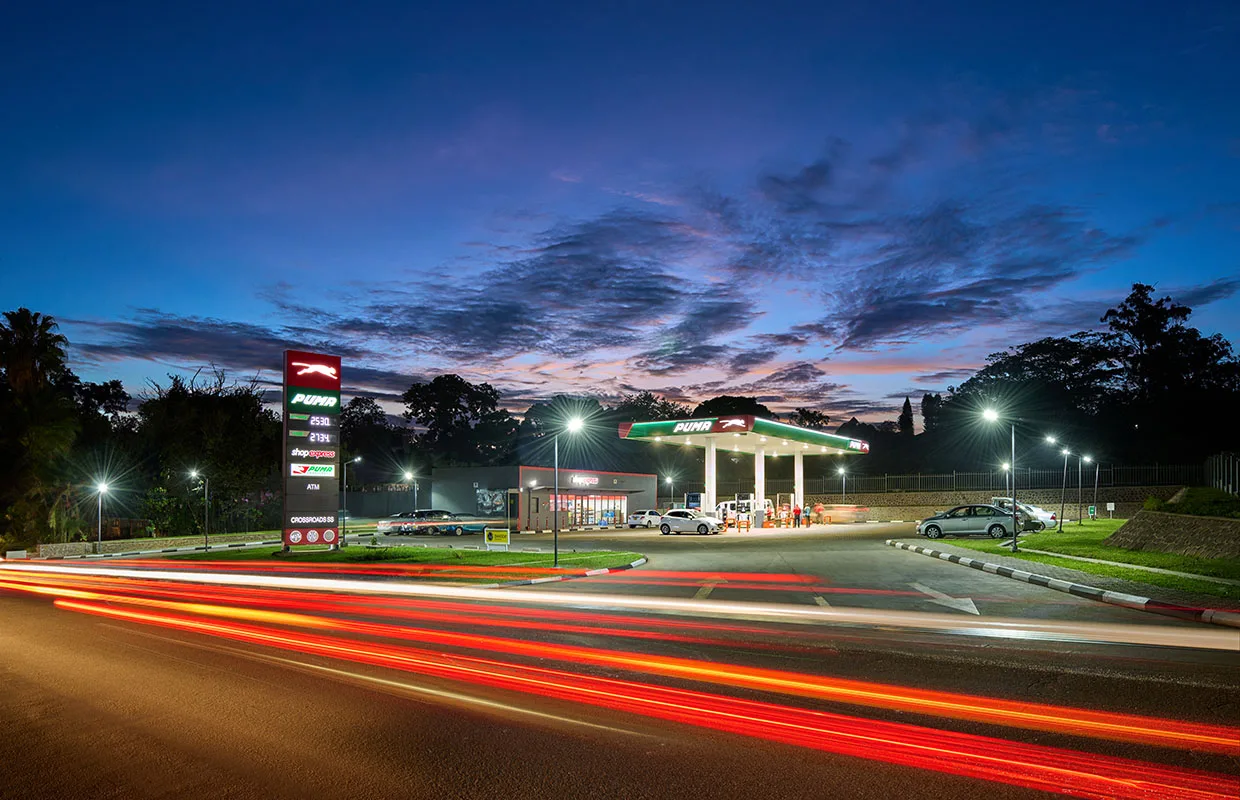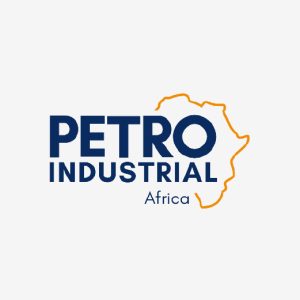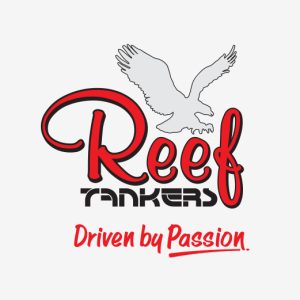CUSTOMER-CENTRIC CULTURE
Likewise, Puma Energy strives to build strong partnerships with customers and deliver the best solutions for their needs as part of its wholeheartedly customer-centric culture.
This is a key element of the company’s strategy, with customers at the core of everything Puma Energy does to ensure it is easy to do business with.
Its growing network of convenience stores, for example, is tailored to meet the needs of its customers, providing a focal point for the local community.
Commercial customers, meanwhile, rely on Puma Energy to provide them with high-quality and reliable energy, lubricant, and bitumen solutions that support their growth and success.
The company’s customer-centric approach also includes being responsive to their needs and forming lasting relationships with them.
“Puma Energy’s tailored solutions, responsive service, and focus on building long-term relationships differentiate us from our competitors,” acclaims Ouattara.
This responsiveness also ties into the agility and adaptability of Puma Energy’s organisational model, which empowers faster strategic decision-making at regional and country levels.
The company continues to strengthen its country management structure, increasing Puma Energy’s agility and capitalising on its in-depth knowledge of the areas it operates in.
“With our flat, decentralised structure, we are able to stay agile and respond quickly to customer needs, as well as market changes and regulatory shifts,” highlights Ouattara.
“With our flat, decentralised structure, we are able to stay agile and respond quickly to customer needs, as well as market changes and regulatory shifts”
Ben Ouattara, COO – Africa, Puma Energy
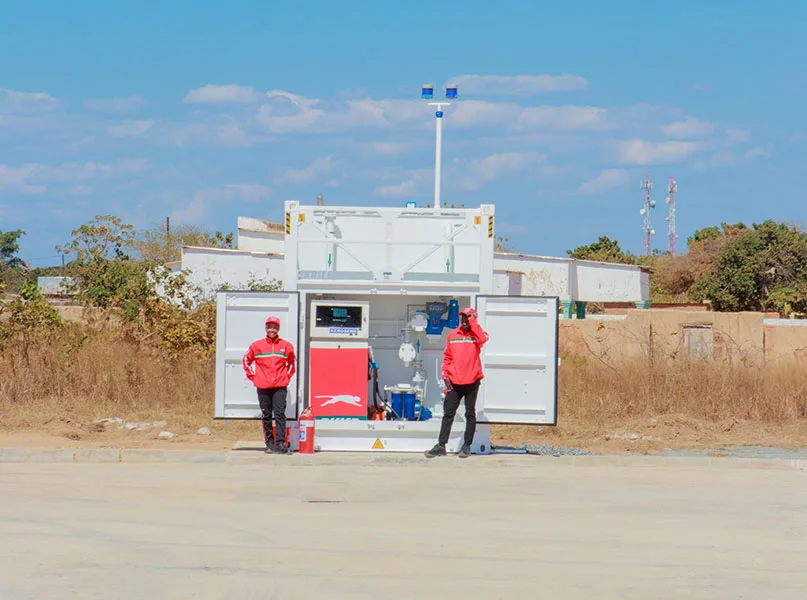
DEVELOPING LOCAL TALENT
With over 2,000 staff members across the Africa business, Puma Energy has a strong focus on local talent development and capacity building.
Indeed, some of the company’s key targets and initiatives include investing in employee well-being and skills and recruiting 95 percent of its workforce from local talent pools, such as its graduate programme.
This 12-month programme is designed to provide top graduates with a structured series of developmental rotations across Puma Energy to help them build a comprehensive understanding of the company’s fundamentals before moving into a specific business unit.
The programme opens up a range of career growth opportunities within Puma Energy for graduates and drives operational excellence by having the right people with the right skills and mindsets in the right positions, working together to run the business safely, profitably, and with integrity.
As well as this, it cultivates commercial acumen and encourages participants to capture opportunities for themselves.
Committed to providing meaningful employment opportunities, the company is therefore always looking for excellent candidates as its success relies on the well-being, dedication, expertise, and passion of its people.
“We prioritise developing local talent, supporting community initiatives, and fostering economic growth in the regions we operate,” expands Ouattara.
Creating a collaborative and inclusive work environment remains a core objective in order to enable high performance, strategic growth, and employee safety, as the company aims for zero workplace fatalities.
Thus, Puma Energy is dedicated to the well-being of employees, customers, and communities, with every decision it makes viewed as an opportunity to positively impact its people and foster a safe workplace.
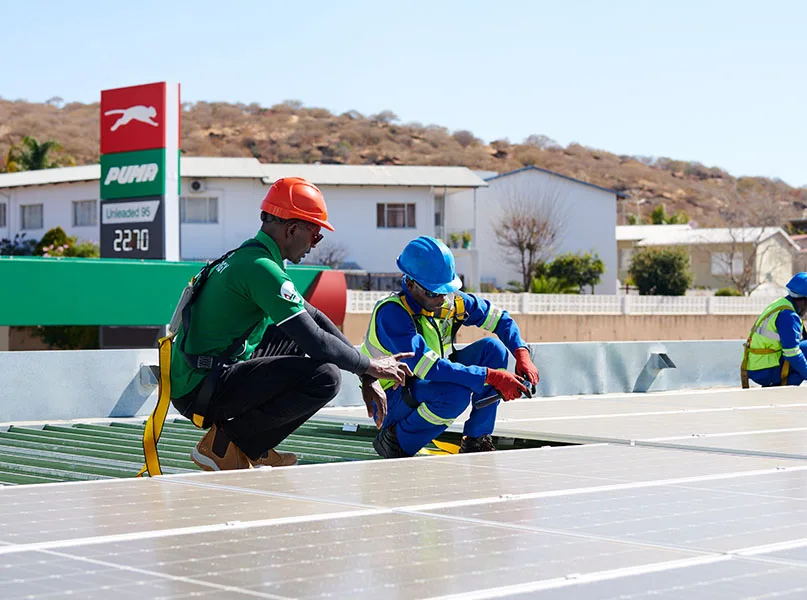
ROAD SAFETY
As part of its corporate social responsibility (CSR) activities, Puma Energy’s ‘Be Road Safe’ campaign also aims to promote road safety awareness with the ambition of contributing to the reduction of road accidents in the communities where it operates.
Part of the wider ‘Be Puma Energy Safe’ initiative, which also comprises citizen and youth empowerment, the campaign aims to address the growing epidemic of road traffic injuries (RTIs) in sub-Saharan Africa, which has the world’s highest rate of RTIs.
As the region has a young and fast-growing population, there are an increasing number of vehicles on the roads and more people are likely to be affected by RTIs as a result.
“Countries in sub-Saharan Africa will have dynamic, increasingly mobile populations in the decades ahead,” Ouattara informs us.
‘Be Road Safe’, which includes a long-term collaboration with the company’s implementing partner, Amend, was launched in Tanzania in 2013. It has now also been implemented across Botswana, Zambia, and Zimbabwe, and will be expanded to Mozambique and South Africa in 2025.
Since launch, Puma Energy has delivered road safety activities in a number of countries throughout sub-Saharan Africa, benefitting more than 100,000 children from over 240 schools across the continent identified as being at high risk of RTIs.
Thus, the campaign intends to improve the safety of African children on the roads today and prepare them to be responsible road users in the future.
“The activities focus on primary school children and spread road safety messages throughout communities,” details Ouattara.

REFOCUSED SUSTAINABILITY STRATEGY
People and Communities is one of four important pillars that form Puma Energy’s refocused sustainability strategy and ESG framework, ensuring it has a positive socioeconomic impact on the communities it serves, along with Energy Transition and Climate Change, Local Environment and Nature, and Governance and Supply Chains.
“Our emphasis on safety, quality, and environmental sustainability earns us repeat business and reinforces our reputation for operational excellence,” Ouattara tells us.
Striving to be a trusted, socially responsible business, Puma Energy is committed to reducing operational greenhouse gas (GHG) emissions and helping mitigate climate change.
“We are reducing our operational GHG emissions by 15 percent by the end of 2025 and contributing to the adoption of lower-carbon and renewable energy solutions,” reveals Ouattara.
“We will continue to expand our solar and lower-carbon fuel solutions to industrial customers and further decarbonise our operations.”
For example, Puma Energy sees strong potential in the likes of solar power, lower-carbon bitumen, sustainable aviation fuel, LPG for clean cooking, and more.
The latter is something that the company is especially committed to as LPG plays a vital role in the energy mix in sub-Saharan Africa, where an estimated 970 million people lack access to clean cooking fuels and technologies according to the International Energy Agency (IEA).
Indeed, many households in the region rely on solid fuels such as wood and charcoal or kerosene, leading to environmental and health hazards, with the use of wood contributing to deforestation and household air pollution linked to 2.5 million premature deaths globally.
As such, Puma Energy is encouraging the transition to cleaner cooking fuels and implementing an LPG strategy in sub-Saharan Africa to ensure availability, accessibility, and affordability.
LPG is a safe, convenient, and cost-effective way to enable cleaner cooking and reduce the negative impacts of burning traditional cooking fuels, and Puma Energy believes it is a critical solution to Africa’s energy transition.
“We want to improve access to clean cooking across Africa,” Ouattara states.
The company reaffirmed this commitment in May 2024 during the IEA’s Summit on Clean Cooking in Africa held in Paris, where Puma Energy joined the Clean Cooking Declaration and thereby pledged to take concrete steps towards advancing the clean cooking agenda.
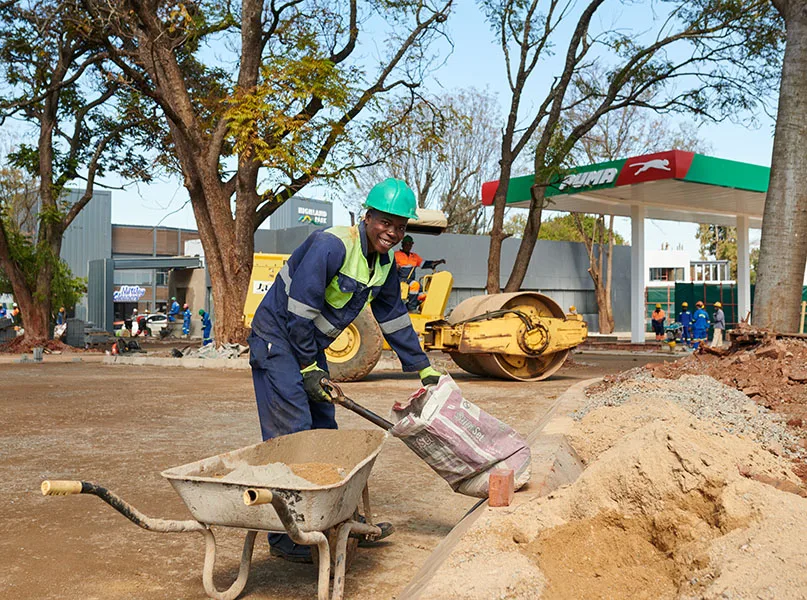
DRIVING SUSTAINABILITY
Puma Energy’s key Energy Transition and Climate Change targets and initiatives also involve installing solar panels across retail and terminal sites, reducing Scope 1 and 2 emissions, and diversifying its offerings into lower carbon and renewable energy solutions.
The Local Environment and Nature pillar, meanwhile, aims to manage and minimise Puma Energy’s impact on the natural environment.
This is achieved through implementing health, safety, security, and environment (HSSE) policies, management plans, and mitigatory actions against oil spills by, for example, reinforcing safeguards and environmental management systems across high-risk sites.
Last but not least, the Governance and Supply Chains pillar looks to embed good governance in order to protect Puma Energy’s business and drive sustainability.
“Embedding robust governance and procedures across the value chain enhances our corporate culture and ethical business conduct,” Ouattara states.
As Puma Energy aims to reduce its carbon footprint, leverage renewable power sources, and support Africa’s green transition, the company is making several investments in renewable energy.
These investments are focused on solar installations, which are being rolled out at more than 50 Puma Energy service stations across the continent, and collaborations with renewable energy developers and technology providers.
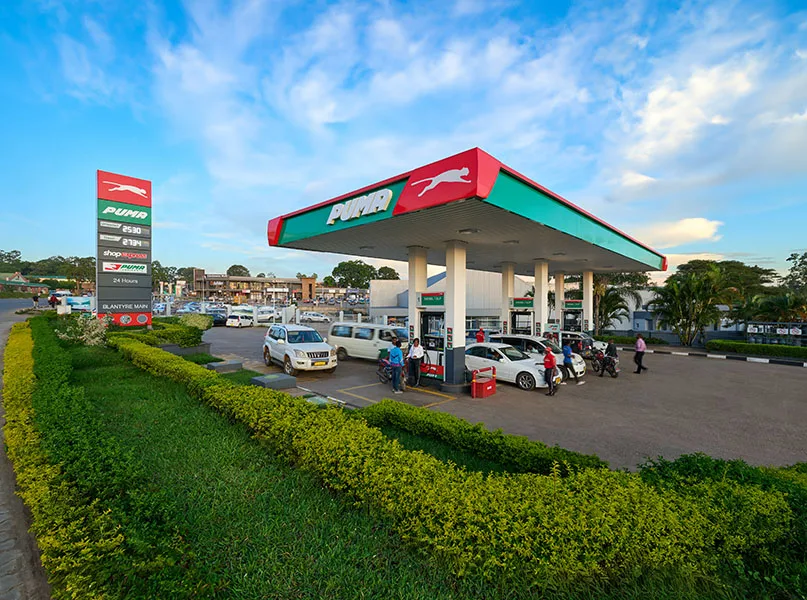
SEGMENTATION STRATEGY
Elsewhere, Puma Energy has implemented a segmentation strategy to enhance operational efficiency, improve its customer focus, and unlock growth opportunities across Africa.
Segmentation allows the company to understand specific customer needs, preferences, and behaviours, enabling it to provide tailored solutions.
With this, Puma Energy has streamlined its processes whilst reducing complexity to deliver cost savings and increased productivity.
“This has helped us to allocate resources effectively, prioritising areas with the greatest potential for growth,” elaborates Ouattara.
“We believe that by focusing on specific segments, our business differentiates itself and establishes a competitive advantage. Even when it comes to risk management, we have managed to put ourselves in a situation where we mitigate risks by diversifying revenue streams and reducing dependence on a single market.”
Ouattara equally believes that Puma Energy’s ability to deliver exceptional results can be directly attributed to the strength of its relationships with key stakeholders, namely the partners, suppliers, and staff who are the backbone of the company’s success.
Partners play a vital role, as Puma Energy collaborates with other major oil companies and local businesses to drive growth and expand its footprint.
“These partnerships enable us to leverage expertise and resources, enhance our market position, develop innovative solutions, and share knowledge and best practices,” he enlightens.
Suppliers, meanwhile, are crucial to the company’s operational efficiency, whilst staff are its greatest asset as their dedication, ability, and passion drive Puma Energy’s success.
“We recognise the importance of these relationships and strive to nurture and strengthen them so that we continue to grow and innovate.
“At Puma Energy, we cultivate a collaborative culture – by working together, we achieve far more than we could alone,” Ouattara concludes.



